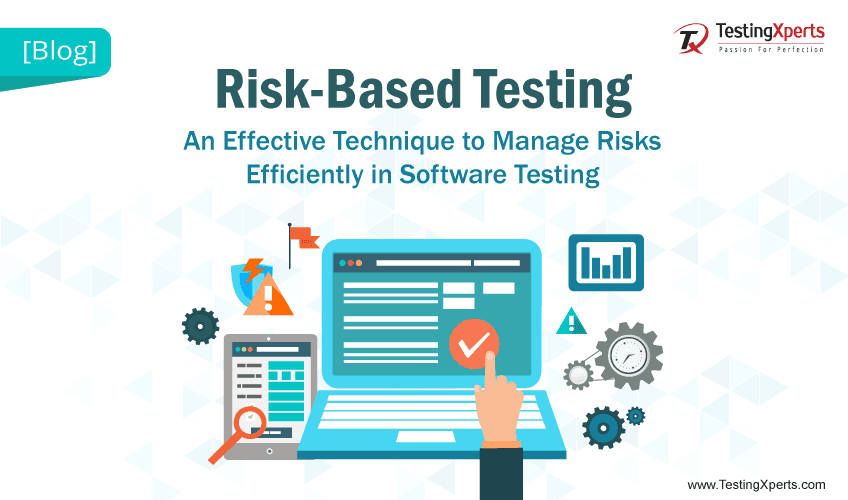Recommended Blogs
Risk Based Testing: An Effective Technique to Manage Risks Efficiently in Software Testing

Speed is the new method for achieving success these days. Everyone is trying to work faster, the same applies to the software development teams. However, working too quickly without enough checks in place can lead to critical software issues. There is an utmost need for identifying risks and problem areas in an application before its release.
Contents
- Risk Based Testing
- How Risk based Testing Helps
- Risk based Testing Phases
- TestingXperts’ Expertise in Risk-Based Testing
Risk Based Testing Explained
Most teams have limited resources, therefore optimally using the available resources is the key to achieve good quality. An expert software tester knows how to discover and mitigate risks early on in the development lifecycle and deliver a defect-free application.
In order to prioritize testing and identify problem areas faster, there is a need to discover risks early on in the sprint. A risk based testing approach encourages QAs to be aware of the elements that can cause project failure. Risk based testing consists of both mitigation and contingency:
Mitigation: Mitigation helps in reducing the probability of defects. Contingency: Contingency helps in reducing the risk impact in case if the risk becomes an outcome
Risk based testing also comprises of risk analysis to eradicate or prevent defects by non-testing activities and accordingly choose the testing activities.
How Risk based Testing Helps
Risk-based testing optimizes testing by recognizing and eradicating risks that could have a negative impact on your organization. These days, mature QA organizations are implementing risk-based testing to speed up their testing process and improve results at the same time. As part of modern software testing trends, this approach is gaining popularity for its efficiency and precision. Let’s understand the process involved with risk-based testing that helps organizations to grow and develop a successful application/software.
Here are the four main phases to be kept in mind while executing risk based testing:
Risk Identification: In this phase, all the possible risks are identified and defined for the functional modules of the application under test. This is done through risk workshops, interviewing, checklists, brainstorming, and root cause analysis.
Risk Analysis: After the risk has been identified, the risk is then analyzed and filtered based on the significance. In this phase, the tests are prioritized based on the criticality of the risk associated.
Risk based Testing Phases
Risk Response: Based on the analysis, it’s decided whether the risk requires a response or not. Some risks require a response in the project plan while some will require a response in project monitoring, and there will be some risks that will not require a response.
Risk Monitoring and Control: In this process, the risks identified are monitored, updated, analyzed, and then executed.
Technical and business specialists work together to evaluate risk levels for application features, which then map over to explicit test cases. These risks comprise of business risks along with technical risks, such as intricacy of the code and how frequently the code has been changed before being tested.
Subsequently, test cases are placed in order according to the risks, with the highest-risk tests are performed first. Depending upon budget and time, low-risk tests might be overlooked.
This is the basic philosophy of risk-based testing. Rather than trying to catch every bug, irrespective of its significance to the overall functionality and user experience, risk-based testing proposes a different approach based on prioritizing test cases in line with business and user impact.
TestingXperts’ Expertise in Risk-Based Testing
At TestingXperts, we specialize in providing end-to-end testing and test automation solutions that are backed by a unique framework, i.e. ‘Tx-Automate’, recognized test accelerators and the best software testing resources in the industry. Our expert team of testing specialists helps to boost IT productivity and increase application quality ensuring that you get higher productivity and a desirable time to market.
Discover more

